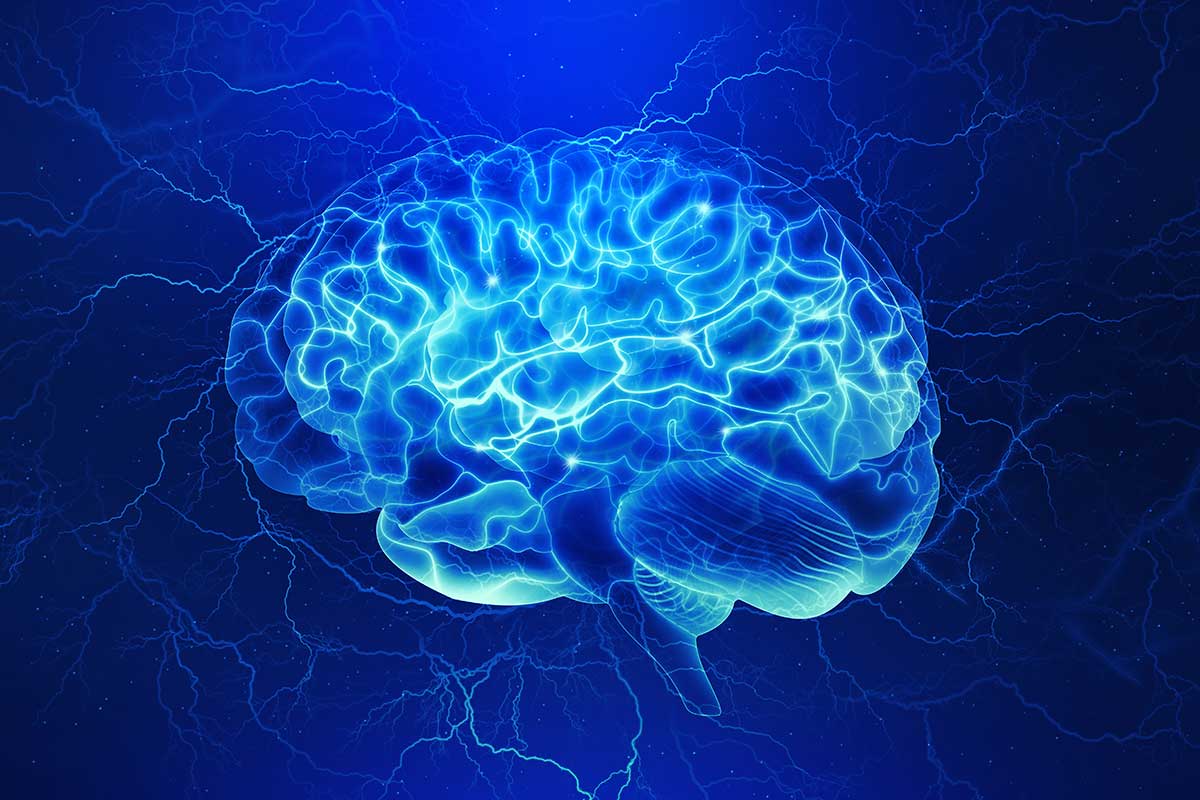Transcranial magnetic stimulation, referred to simply as TMS, was invented in 1985 and approved for use by the FDA in 2008. Multiple clinical studies have shown TMS to be highly effective for the treatment of depression. In addiction treatment, TMS therapy programs treat depression that either contributed to the substance use disorder or arose as a symptom of withdrawal. TMS also appears to be very effective in reducing cravings, making it very beneficial in addiction treatment.
At Westwind Recovery®, we believe in the value of incorporating evidence-based therapies like TMS into our comprehensive, integrated approach to treating substance use disorders and co-occurring mental health disorders. Find out how you can take advantage of the benefits of a TMS therapy program by calling us today.
How Does TMS Therapy Work?
TMS is a non-invasive, outpatient brain stimulation therapy. It uses electromagnetic pulses to encourage neurotransmitter activity in particular areas of the brain, known to play a role in depression, addiction, and other mental health disorders. TMS therapy is administered by a technician or physician who is highly trained in the process.
Our bodies make many neurotransmitters that our nervous system uses to send messages between nerve cells in very basic terms. Serotonin, norepinephrine, and dopamine are neurotransmitters that heavily influence our moods, our stress response, and how we experience pleasure.
Alcohol and drug use interfere with our body’s natural production of these neurotransmitters. During addiction, the body has become entirely dependent on the presence of alcohol or drugs to produce these neurotransmitters. The absence of these substances then causes withdrawal symptoms. These same neurotransmitters play significant roles in depression and other mental health conditions.
During TMS therapy, an electromagnetic coil is placed against your scalp near the left dorsolateral prefrontal cortex, the area of the brain responsible for mood regulation. This painlessly delivers a magnetic pulse, similar to that of an MRI machine, that stimulates nerve cells to enhance the function of the neurotransmitters mentioned above. Here is what you can expect in a TMS session:
- You will remove anything sensitive to magnets, like jewelry
- You will be comfortably seated and fully awake
- The technician will take measurements to personalize the machine settings
- You will wear earplugs to minimize the clicking sounds
- You will feel a tapping sensation under the electromagnetic coil
- Your treatment will last between 30-60 minutes
A typical course of TMS therapy is between four-to-six weeks and is dependent upon your response to treatment. At Westwind Recovery®, we work with experienced providers like the Southern California TMS Center to provide our clients access to this therapy.
TMS Therapy Is Safe and Effective
TMS is an evidence-based therapy, meaning that it has been proven effective, especially in treating people who suffer from substance use disorders and co-occurring mental health disorders. Perhaps the most significant benefit of TMS therapy is that it is noninvasive and works without the need for medications. Additionally, TMS is essentially painless and produces minimal side effects.
Mild to moderate side effects that do occur generally dissipate quickly and are lessened with each subsequent session. They include:
- Feeling lightheaded
- Tingling, twitching, or facial muscle spasms
- Headache
- Slight discomfort at stimulation point on the scalp
In contrast to medications, which need to be taken continuously for desired effects, the results of TMS therapy have shown to be long-lasting. Countless studies have shown that a significant number of people who undergo TMS therapy demonstrate a statistically significant improvement in their symptoms.
Discover TMS Therapy at Westwind Recovery®
Voted one of the nation’s Best Addiction Treatment Centers in 2020 by Newsweek, Westwind Recovery® is committed to providing the most current evidence-based treatment modalities available in the fight against addiction. As part of that effort, we collaborate with TMS therapy leaders in the greater Los Angeles area to offer this cutting-edge addiction therapy as part of our overall integrated approach to addiction treatment. To see if TMS therapy can benefit you, call us today.

Dr. Deena is the Chief Clinical Officer of Westwind Recovery®, an award-winning outpatient treatment center in Los Angeles where she oversees the clinical and administrative program and treatment methods. Dr. Deena is a doctor of psychology and licensed clinical social worker since 1993. LCSW #20628. Originally from the East Coast, Dr. Deena has worked running treatment centers, worked as a therapist in psychiatric hospitals as well as school settings and currently has a thriving private practice in the LA area. Dr. Deena has appeared regularly on the Dr. Phil Show as an expert since 2003. She has also been featured on many other TV shows, podcasts and has contributed to written publications as well as podcasts.



